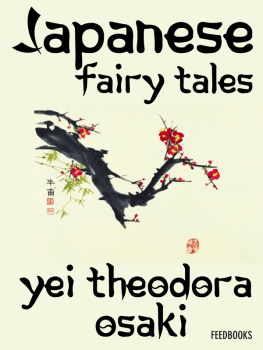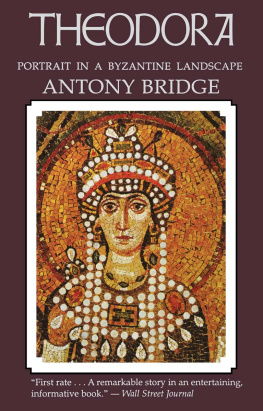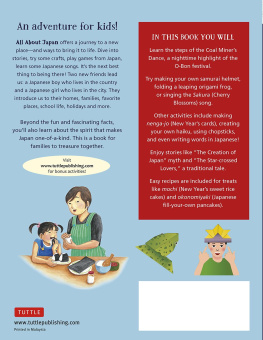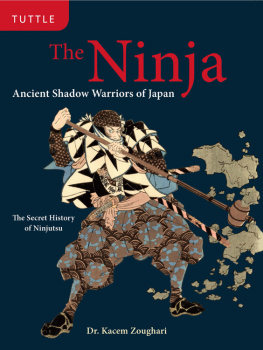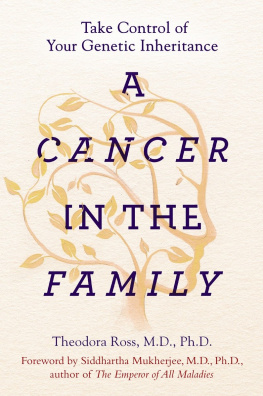YEI THEODORA OZAKI
AUTHOR OF THE JAPANESE FAIRY BOOK
ILLUSTRATED
BY SHUSUI OKAKURA
AND OTHER JAPANESE ARTISTS
HOUGHTON MIFFLIN COMPANY
BOSTON AND NEW YORK
1909
RUSHED UPON THE MONSTER AND QUICKLY DESPATCHED HIM
PREFACE
The kind reception given to "The Japanese Fairy Book" has encouraged me to venture on a second volume of stories from Japan. I have invented none of these stories. They are taken from many different sources, and in clothing them with an English dress my work has been that of adapter rather than translator. In picturesqueness of conception Japanese stories yield the palm to none. And they are rich in quaint expressions and dainty conceits. But they are apt to be written in a style almost too bald. This defect the professional story-teller remedies by colouring his story as he tells it. In the same way I have tried to brighten the rather bare structure of a story, where it seemed to need such treatment; with touches of local colour in order to give emphasis to the narrative, and at the same time make the story more attractive to the foreign reader. Whether I have succeeded or not, the reader must judge for himself. I shall be satisfied if in some small measure I have been able to do for Japanese folk-lore what Andrew Lang has done for folk-lore in general, and if the tales in their English dress are found to retain the essential features of Japanese stories.
Miss Fusa Okamoto and Mr. Taketaro Matsuda, my brother, Nobumori Ozaki, and one or two friends have given me help in translation.
For the introductory note I am indebted to Mr. J.H. Gubbins, C.M.G., of the British Embassy, Tokyo.
Most of the illustrations have been drawn by Mr. Shusui Okakura, of the Peers' College, to whose painstaking and patient collaboration grateful acknowledgment is due. A few of the pictures were drawn by Mr. Tsutsui, of the "Jiji Shimbun," and some of the historical pictures by Mr. Kokuho Utagawa and Mr. Tosen Toda.
Yei Theodora Ozaki.
CONTENTS
Preface
Introductory Note
Madame Yukio Ozaki
ILLUSTRATIONS
(Frontispiece)
INTRODUCTORY NOTE
Those who three years ago welcomed the appearance of "The Japanese Fairy Book" will be grateful to Madame Ozaki for the new treat afforded in the present volume. "The Japanese Fairy Book" appealed alike to the child, in or out of the nursery, to the student of folk-lore, and to the lover of things Japanese. To all of these the stories here told will come as old friends with new faces.
In a country whose people are born story-tellers, where story-telling long since rose to the dignity of a profession, and the story-teller is sure of an appreciative audience, whether at a village fair or in a city theatre, the authoress had not to go far afield in search of her materials. But the range of this class of literature is wide, embracing as it does all that goes to make folk-lore, legendary history, fairy tales, and myths.
From all these sources the present stories are drawn, and in each case the selection is justified and the story loses nothing in the telling. The simple directness of narrative peculiar to Japanese tales is not lost in the English setting, and the little glimpses we are given into Japanese verse may tempt the reader to do like Oliver Twist and "ask for more."
J.H. Gubbins.
Tokyo, May, 1909.
MADAME YUKIO OZAKI
A BIOGRAPHICAL SKETCH, BY MRS. HUGH FRASER
In the attempt to describe a character it is wise to begin, if possible, with its distinguishing attribute, the one which will leave its mark on the time, after the popularity of definite achievements may have passed away. So I will say, before going any further into the subject of this sketch, that if I were asked to single out the person who, to-day, most truly apprehends the points of contact and divergence in the thought of East and West, I would name the gentle dark-eyed lady who is the light of an ancient house in the loveliest part of Tokyo, a spot where, as she sits under the great pines of her garden, she can hear the long Pacific rollers breaking on the white beaches of Japan and listen to the wind as it murmurs its haunting songs of other homes in distant lands where she is known and loved. For though Yei Theodora Ozaki is a daughter of the East in heart and soul and parentage, one to whom all the fine ways and thoughts of it come by nature, she is also a child of the West in training, in culture, in the intellectual justice which enables her to discern the greatnesses and smile indulgently at the littlenesses of both.
Her father, Baron Saburo Ozaki, the descendant of a Kyoto samurai family, a member of the House of Peers, and a Privy Councillor, was one of the first Japanese who went to England to study its language and institutions. While there, he made the acquaintance of Miss Bathia Catherine Morrison, and shortly afterwards she became his wife. This lady was the daughter of William Morrison, Esq., a profound scholar and linguist, who would have been more famous had not his attainments, great as they were, been overshadowed by those of his brother, the Rev. Alexander Morrison, whose translations of the works of German philosophers and historians placed much valuable material at the disposal of English readers.
William Morrison's name, however, was known and loved in Japan many years before his little granddaughter Yei (the Illustrious Flower Petal) was born, for he was the instructor of most of the Japanese great men who went to England to learn the ways and speech of modern enlightenment. Prince Mori, Marquis Inouye, Baron Suyematsu, and many others who afterwards rose to eminence, were among his pupils, and when Baron Ozaki became his son-in-law it would have been natural to conclude that Miss Morrison was fairly familiar already with many sides of the complex Japanese character. But the union was not a happy one; and when, several years later, I made her acquaintance, I thought I could divine the reason. She was a charming and intelligent woman, but she was English to the backbone, and it was impossible for her to appreciate or sympathize with anything that was not British. And Saburo Ozaki was as fundamentally Japanese.
Five years after their marriage they separated, by mutual consent; three little girls, of whom Yei Theodora was the second, remained in England with their mother and received a very thorough English education. Mr. Morrison took great interest in O Yei and brought her many books, which she devoured greedily, having inherited all his love of literature and learning. I have often heard her say that whatever ability she possesses in that direction is due to her English grandfather.
She was just sixteen when Baron Ozaki insisted upon her coming out to live with him in Japan, and she gladly complied with his wishes. On meeting her after their long separation, he was delighted with her charm and grace, and pleasantly surprised to find that in appearance she was quite a Japanese maiden, small and slender, with dark eyes, pale complexion, and a mass of glossy black hair. Accustomed to rule as an autocrat over his household, he decreed that henceforth she was to be only Japanese. She was quite willing to please him in this, so far as she could; the pretty picturesque ways of her new home appealed to her artistic instinct, and the traditions and ideals of Japanese life at once claimed her for their own; her mental inheritance responded to them joyfully. But this was not quite enough for her father. His duty, from his point of view, was to arrange a suitable marriage for her as soon as possible; but here he met with an unexpected difficulty. The example of her parents' estrangement had inspired the girl with something like terror of the married state, and she had grown up with the resolve not to run the risk of contracting a like ill-assorted union. In consequence, she found herself in opposition to her father, an impossible situation in a Japanese family, and especially undesirable where there were younger children growing up, as in this case, for Baron Ozaki had married again after his return to his own country. Various other circumstances also combined to make her decide at this time to become independent. Her knowledge of English qualified her to give instruction in that language, and her superior education and well-known social position brought her many pupils in a land where teaching is looked upon as the highest of all professions.



